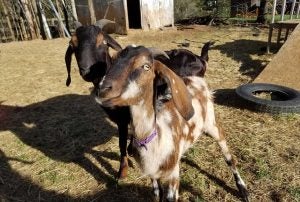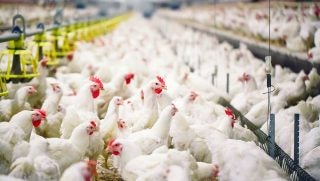I’ve never stepped foot into an IKEA store. And I’d be willing to bet that that’s true for most of you who are reading this article right now.
It’s something that separates us rural folks from our urban and suburban counterparts. Of course, there are many things that make us different, from our perspective on the world to the cost of living to how we approach each day.
And while there are many articles out there that show how growing up on a farm is a wonderful and unique experience for our youth, there are several quirks and insights about rural living that I never realized until I got older. It might be how someone talks or how we adapt to life, but all of it makes us uniquely rural, and I wouldn’t have it any other way.
Here are 10 things that really struck me about rural life as an adult:
1. ‘Neighbor’ has a whole different definition
If you live in the city, how far does someone have to live from you before you’re no longer their “neighbor”? A few blocks? Half a mile? Beyond the five roads in your subdivision? In the country, that measurement is a whole lot different.
I remember about 10 years ago, walking into the lone restaurant in my little burg and seeing a table of old-timers drinking and laughing. I knew one of the fellows, whom I met after he helped me catch my Mustang that had gotten loose from the pasture. He introduced me to the others at the table: They were all “neighbors,” even the guy who lived about five miles away. Because, simply, there aren’t that many houses between him and me, and in the country, we’re all neighbors. I wave to them when I drive by — every time — and we all converge on the same place to eat and to fill up our gas tanks.
Neighbor is more the shared experience of the rural community than it is being able to see the other guy’s house from yours.
2. Loving the smell of manure
It has been said that smell is the strongest sense tied to memory, and no matter how long I’m away, the smell of horse manure always reminds me of home — my home. I love it, no joke! I don’t care if it’s drying in the pasture or sitting on the ground after a heavy rain, there is something comforting about it, about knowing that these animals are an important part of my life and part of my family, about knowing that I have this responsibility.
Just about anyone who raises livestock cares and appreciates their animals fully, and even when the day entails having to muck stalls, I wouldn’t want it any other way.

3. There’s the right clothes and the wrong clothes at feeding time
No matter how long your day has been, how pressed for time you are, or how ready for bed you are, wearing flip-flops is always the wrong way to feed your animals. Period. End of discussion. I’ve been on the wrong end of a horse hoof before, and it’s totally not worth it.
Pajama pants are cool though.
4. Taking trash to the dump
If you’re waiting for the trash man to make his rounds in the country, you’ll be waiting a long time. Yeah, just about every rural family near me has a pickup truck, and for good reason — one of them being to haul trash to the local dump every so often. And I don’t mean major demolition jobs, I’m talking the three or four bags you want to get out of the house before they start stinking and attracting gnats. (Or you could dig a big hole every few years and dispose of it that way … every rural area is different.)
It may seem a bit silly, but there’s a lot of independence in being able to set your own schedule, even on trash runs, and in taking care of yourself as much as possible.
5. Helping to wrangle neighbor’s animals
If you’ve never helped a neighbor corral their cows back home or get their escaped pony back in a round pen, you’re probably not as far into the country as you need to be. I even carry an extra pair of boots in my vehicle just in case I get caught needing to help someone out on my way to church (fyi, God would be cool with you being late to service for that reason) or somewhere else that I’m dressed up. It’s happened before, and I guarantee it’ll happen again.
I’ve met more than a few of my extended neighbors that way.
6. So much is dependent on electricity
And I don’t just mean making sure your phone is charged — though with so few folks having landlines these days, having a dead battery in your smartphone really does cut you off from much of the outside world.
But moreso, it took a long time for it to really sink in that when the power is out, that means real considerations about washing hands or flushing toilets because the well pump is dead. If you live in an urban area and have city water, you’re in better shape during a power outage than the rest of us.
I’m in a particularly tough spot since my heat pump and appliances are all electric, too, so extended periods without power have me thinking of how to keep warm and keep everyone fed (a gas generator is great, but it only gets us so far). And, of course, when there’s only a couple dozen people per square mile, we’re generally pretty low priority when it comes to power restoration.
I’ve always got to be thinking ahead. Speaking of which …
7. A stocked pantry
Who doesn’t have a pantry stocked or deep freezer stocked with goodies in case you get stranded by snow or other major event? Many of us are probably even gearing up to have a freezer full of deer meat.
Worst-case scenario, our normal food supply (in any season of the year) can keep my family of four comfortable for about a week and a half — and there’s bonus points if the food doesn’t have to be warmed up, like if the power is out. The grocery store isn’t close by, so it’s become habit for my wife and I to have a good bit of grub on hand.
That said, my kids are pretty addicted to chicken nuggets, so a power outage may be just the thing to force them to branch out and try new foods once the nuggets run out. 🙂
8. Using a napkin is a hard thing
My work jeans are filthy — most everyone’s are. From the grease and grime of working on machines, to the dirt and manure I wipe on them from the fields and pastures, I think your average Walmart bathroom is cleaner than my pants are. So it’s really hard to scold my kids for wiping their hands on their pants at the dinner table when they see me doing it all the time outside. Paper towel or napkin? No bother. My pants will do just fine.
It’s a lesson that kids watch how we behave all the time, and them mimicking our actions is just part of the growing up.
9. Produce left unattended overnight
For a long time, I didn’t realize how special it was for rural businesses to leave produce or other products outside overnight — with no real security aside from watchful neighbors. It shows real trust among the community. People don’t come by and steal peppers, tomatoes, seedlings, or bags of mulch during the wee hours. I’ve always felt safer and more comfortable out in the country.
10. The prevalence of roadside crosses
Tragedy happens on country roads — those two-lane routes with no shoulder and herds of deer bounding past in the early hours of the night. I had lived in my current house only two months before a muscle car collided with a pickup truck on my winding road, killing four of the five people involved. It’s an event that rocked our community, and to this day, well over 10 years later, there’s a memorial on the road.
I see that a lot in the country, crosses dotting the side of the road, especially near dangerous turns. It’s particularly saddening when there is more than one cross erected there. It’s painful to think how many people were affected by loss that day (Randy Travis’ heartfelt song “Three Wooden Crosses” comes to mind).
It’s not something you see very much in cities (whether because of space limitations or just a desire not to memorialize those we’ve lost, I don’t know), but it’s become part of the rural landscape where I live. Of all the realizations I’ve had as an adult, the growing awareness of these tragedies around me is, by far, the most poignant.
Ryan Tipps is the managing editor for AGDAILY. He has covered farming since 2011, and his writing has been honored by state- and national-level agricultural organizations.



